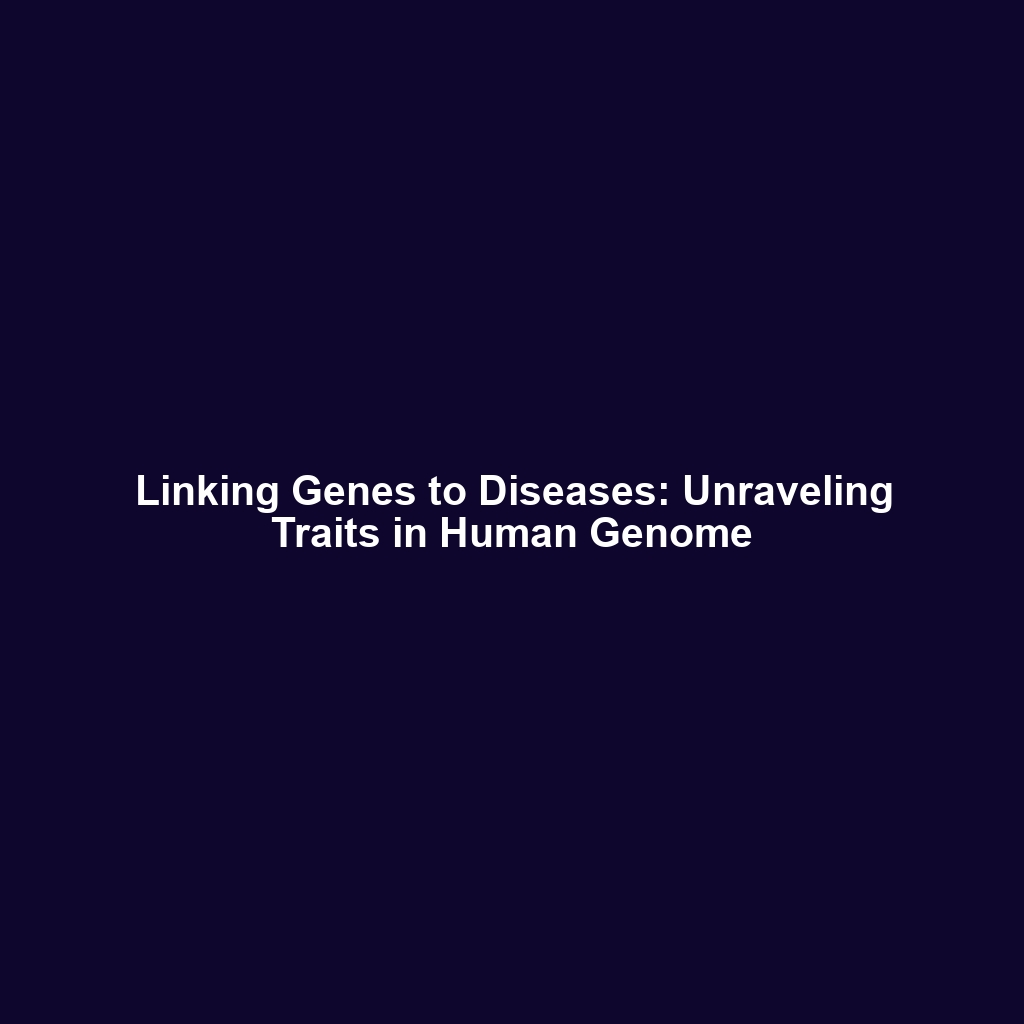Understanding Noncoding DNA in the Context of the Human Genome Project
Introduction: Noncoding DNA, once dismissed as junk DNA, plays a pivotal role in human genetics and genomics. Within the framework of the Human Genome Project (HGP), which successfully mapped the human genome, noncoding regions have emerged as significant contributors to gene regulation and expression. Understanding noncoding DNA is crucial for unraveling the complexities of human biology and its implications for health and disease, especially as research advances. This article delves into the major concepts and applications of noncoding DNA, shedding light on its importance within the Human Genome Project.
Key Concepts
Noncoding DNA refers to segments of DNA that do not encode proteins but are integral to the human genome’s structure and function. Here are some major concepts associated with noncoding DNA, particularly in relation to the Human Genome Project:
Types of Noncoding DNA
- Introns: Noncoding sections within genes that are transcribed but not translated into proteins.
- Promoters: Regulatory sequences that initiate transcription of specific genes.
- Enhancers and Silencers: Elements that can increase or decrease transcription levels.
- Noncoding RNAs: RNA molecules that play roles in gene regulation and expression.
Functions within the Human Genome Project
The Human Genome Project has identified that approximately 98% of the human genome consists of noncoding DNA. Research has revealed that these regions are crucial for regulating the activity of coding genes, functioning as switches that influence developmental processes and responses to environmental factors.
Applications and Real-World Uses
The implications of noncoding DNA extend far beyond basic research. Some significant real-world applications include:
- Genetic Disorders: Understanding noncoding regions has led to insights into various disorders, such as cancer, by revealing how disruptions in regulatory sequences can lead to disease.
- Personalized Medicine: Analyzing noncoding DNA variations can improve risk assessments and tailored treatment plans based on individual genetic profiles.
- Gene Therapy: Noncoding RNA molecules are being explored as therapeutic agents to silence or enhance gene expression.
These applications exemplify how noncoding DNA is used in the context of the Human Genome Project to enhance our understanding of genomics-level health interventions.
Current Challenges
Despite significant advances, there are still challenges associated with studying noncoding DNA. These include:
- Functional Annotation: Determining the specific functions of various noncoding regions remains a complex task.
- Data Interpretation: The vast amount of data generated by genomic studies can lead to difficulties in distinguishing between significant and insignificant variations.
- Ethical Issues: Research into noncoding DNA raises ethical questions regarding genetic privacy and potential misuse of genetic information.
Future Research and Innovations
Future research into noncoding DNA holds promise for unlocking further insights into human genetics. Innovations expected in this area include:
- Next-Generation Sequencing: Enhanced sequencing technologies will facilitate more detailed exploration of noncoding regions.
- CRISPR and Gene Editing: Advancements in gene-editing technologies could enable precise modifications of noncoding DNA to investigate their functions.
- Large-Scale Genomic Studies: Collaborative efforts may help elucidate the roles of noncoding DNA across diverse populations.
Conclusion
Noncoding DNA is an essential component of the human genome, with significant implications unveiled through the Human Genome Project. From enhancing our understanding of genetic regulation to its applications in medicine, the importance of noncoding DNA can not be overstated. As research continues to evolve, staying informed about these developments is crucial. For further reading on related topics, explore our sections on genomic medicine and human genetics.

